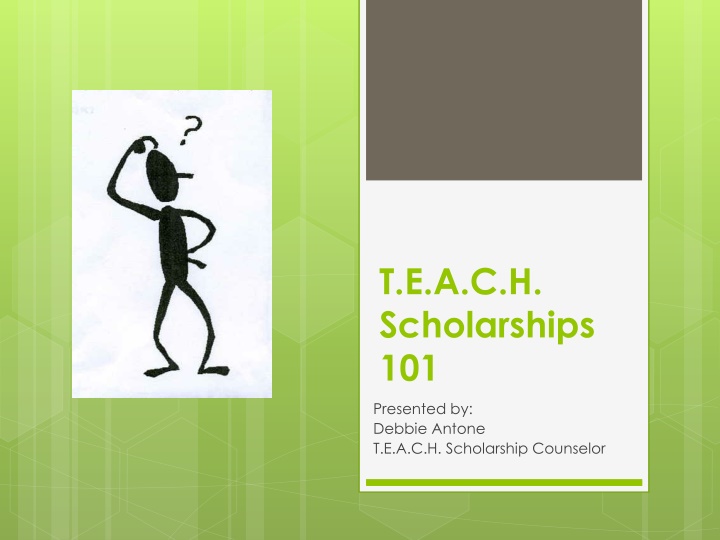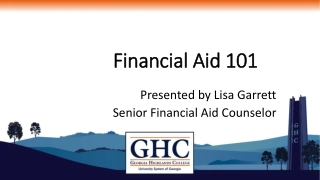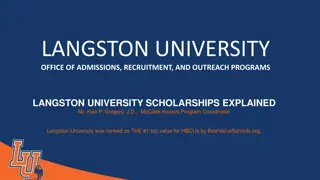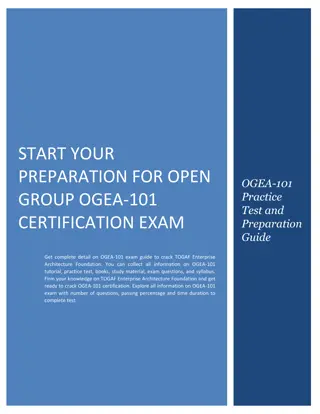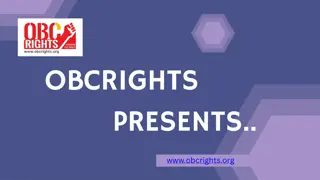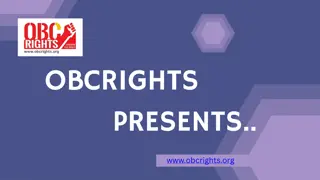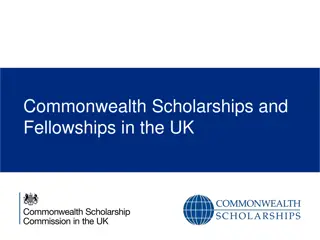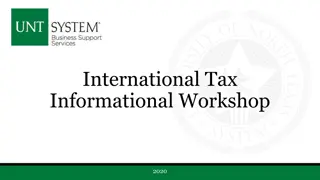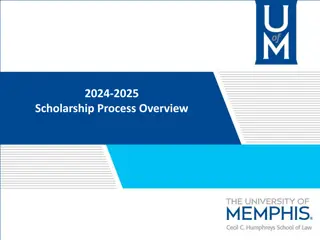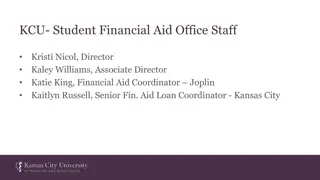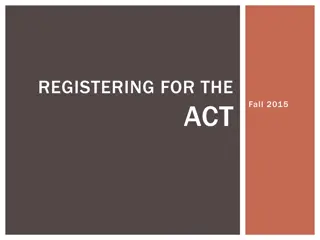T.E.A.C.H. Scholarships 101 Workshop Overview
Explore the T.E.A.C.H. Scholarships 101 workshop presented by Debbie Antone, covering key topics such as early childhood credentials, the importance of a CDA, benefits of an associate degree, and T.E.A.C.H. support for professional development in early childhood education.
Download Presentation

Please find below an Image/Link to download the presentation.
The content on the website is provided AS IS for your information and personal use only. It may not be sold, licensed, or shared on other websites without obtaining consent from the author.If you encounter any issues during the download, it is possible that the publisher has removed the file from their server.
You are allowed to download the files provided on this website for personal or commercial use, subject to the condition that they are used lawfully. All files are the property of their respective owners.
The content on the website is provided AS IS for your information and personal use only. It may not be sold, licensed, or shared on other websites without obtaining consent from the author.
E N D
Presentation Transcript
T.E.A.C.H. Scholarships 101 Presented by: Debbie Antone T.E.A.C.H. Scholarship Counselor
Agenda Introductions The basics: Overview of credentials, degrees and endorsements Decisions to make T.E.A.C.H. support
Introductions Debbie Antone, T.E.A.C.H. Scholarship Counselor What is T.E.A.C.H? Participant introductions, questions to be answered and barriers to degree attainment
Overview of Early Childhood Credentials Child Development Associate (CDA) Associate degree (AA/AS) Bachelor degree (BA/BS) Early Childhood Endorsement (ZS~formerly ZA)
Child Development Associate (CDA) Why should I get a CDA?- CDA is the Best 1stStep! Define Associate vs Associate Degree Application Requirements Credit- Bearing (Community College) At least 18 years old Infant/Toddler Preschool Family Child Care Home Visitor Non Credit- Bearing Experience (480 hours within last 3 years) Professional Portfolio Family Questionnaires
Some employment options with a valid, active CDA Family/Group Home Child Care Provider Assistant Teacher- Head Start/GSRP Additional points for Great Start to Quality
CDA Assessment-T.E.A.C.H. Supports T.E.A.C.H. covers 85% of the CDA fee and provides compensation for recipients after receipt of CDA (either $300 or $200 bonus) Sponsor covers remaining portion-15% ($63.75) OR Recipient covers remaining portion-15% ($63.75) CDA Renewal
Associate Degree in Early Childhood Education/Child Development Why should I get an Associate degree? Process Grants Scholarships Work-study Loans Tax benefits Cost Academics Admission Location, size Course offerings Evaluate transfer credits Create program plan T.E.A.C.H. Application Most recent pay stub
Some employment options with an Associate degree in ECE/Child Development Includes all options listed under the CDA Lead Teacher-Child Care Center School-age Program Director (with 480 hours of experience) Early Childhood Center Program Director (with 480 hours of experience) Additional points for Great Start to Quality
Bachelor Degree in Early Childhood Education/Child Development Why should I get a Bachelor Degree? Process- Same as Associate degree T.E.A.C.H. Application Most recent pay stub Financial Aid Transfer credit evaluation College acceptance letter
Some employment options with a Bachelor degree in ECE/Child Development Includes all options listed under the CDA and Associate Degree Lead Teacher- Head Start/GSRP School-age Program Director Early Childhood Center Program Director T.E.A.C.H. Counselor Training and Technical Assistance Provider Additional points for Great Start to Quality
Adding an Early Childhood Endorsement (ZS) Can be added to a Bachelor Degree in Elementary Education or K-12 Special Education Community College Tuition is less Transfer University Post BA Options Masters Options Can be obtained in conjunction with either of the above degrees Why should I get an Early Childhood Endorsement?
Some employment options with an Early Childhood Endorsement GSRP/Head Start Lead Teacher
T.E.A.C.H. Eligibility Requirements Working at least 20 hours per week Wage maximum: No more than $17.00 per hour or $35,360 annually
T.E.A.C.H. Associate and Bachelor Degree Scholarship Supports 80% of the cost of tuition/fees & books 10%- Recipient (20% family/group home provider) Average Associate degree cost- $95 per semester (6 credits) Average Bachelor degree cost- $262 per semester (6 credits) 10% Sponsor Average Associate degree cost- $95 per semester (6 credits) Average Bachelor degree cost- $262 per semester (6 credits) $50 travel stipend each semester Paid release time reimbursement or Sub-Reimbursement for family/group home providers Employee taking 6 credits- eligible for 6 hours/week (15 weeks/semester) 6 hours x 15 weeks= 90 hours total Sponsor provides up to 6 hours paid time off at employee s normal rate of pay T.E.A.C.H. reimburses sponsoring program for 45 hours at $10 per hour or $450 Compensation at the end of each completed contract (3 semesters/9credits) $100-$400 bonus from T.E.A.C.H. --AND-- 2% raise (AA model) or $100 or $375 bonus from program
Stipend Scholarship Working for a program with a policy or union contract in place which would prohibit employer participation in the scholarship Associate Degree stipend = $200/credit ($1200 cap) Bachelor Degree stipend = $350/credit ($2100 cap)
Questions? For more information or other questions, please contact teach@miaeyc.org, (866) 648-3224 X312 or visit ww.MiAEYC.org Thank you for your participation!
